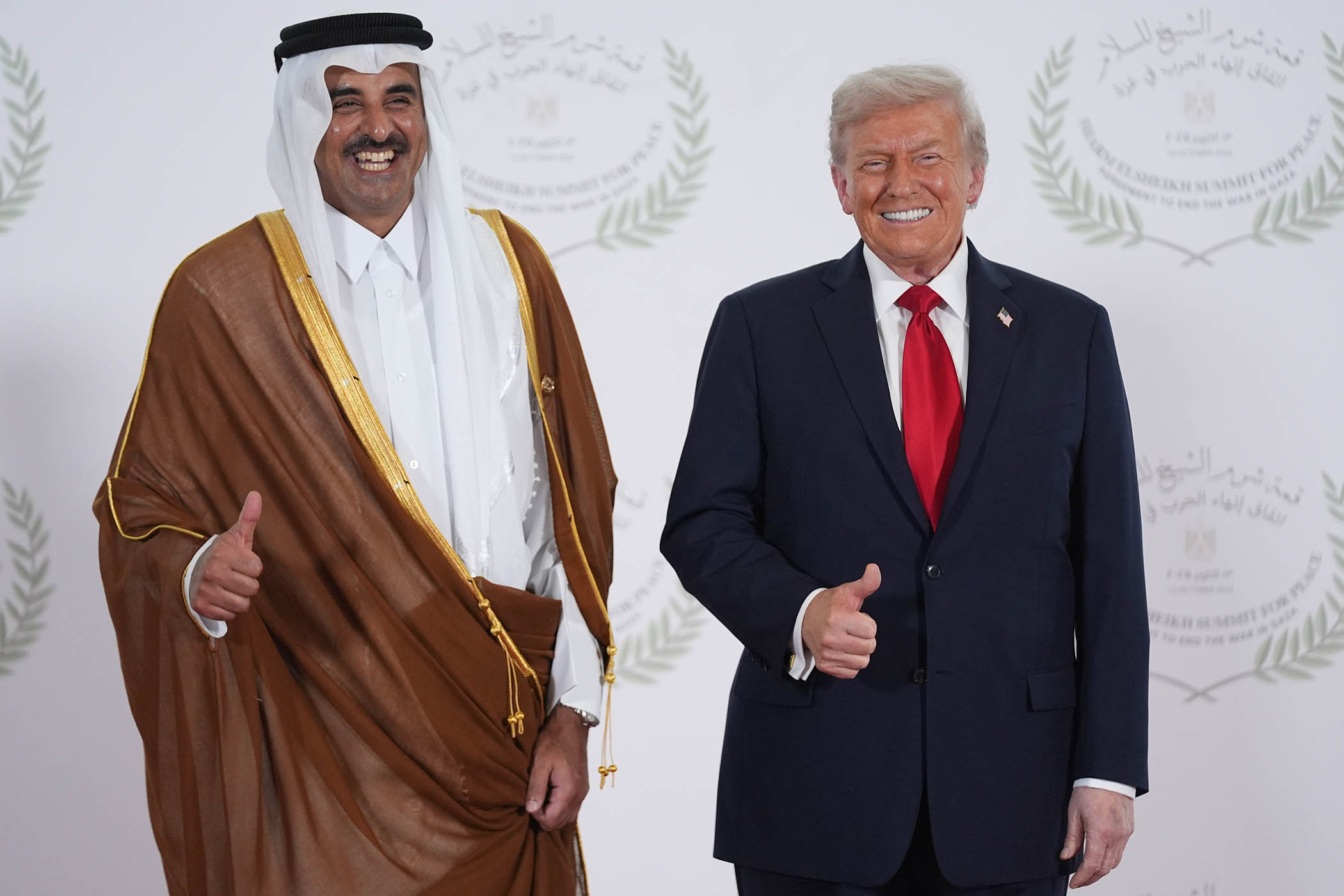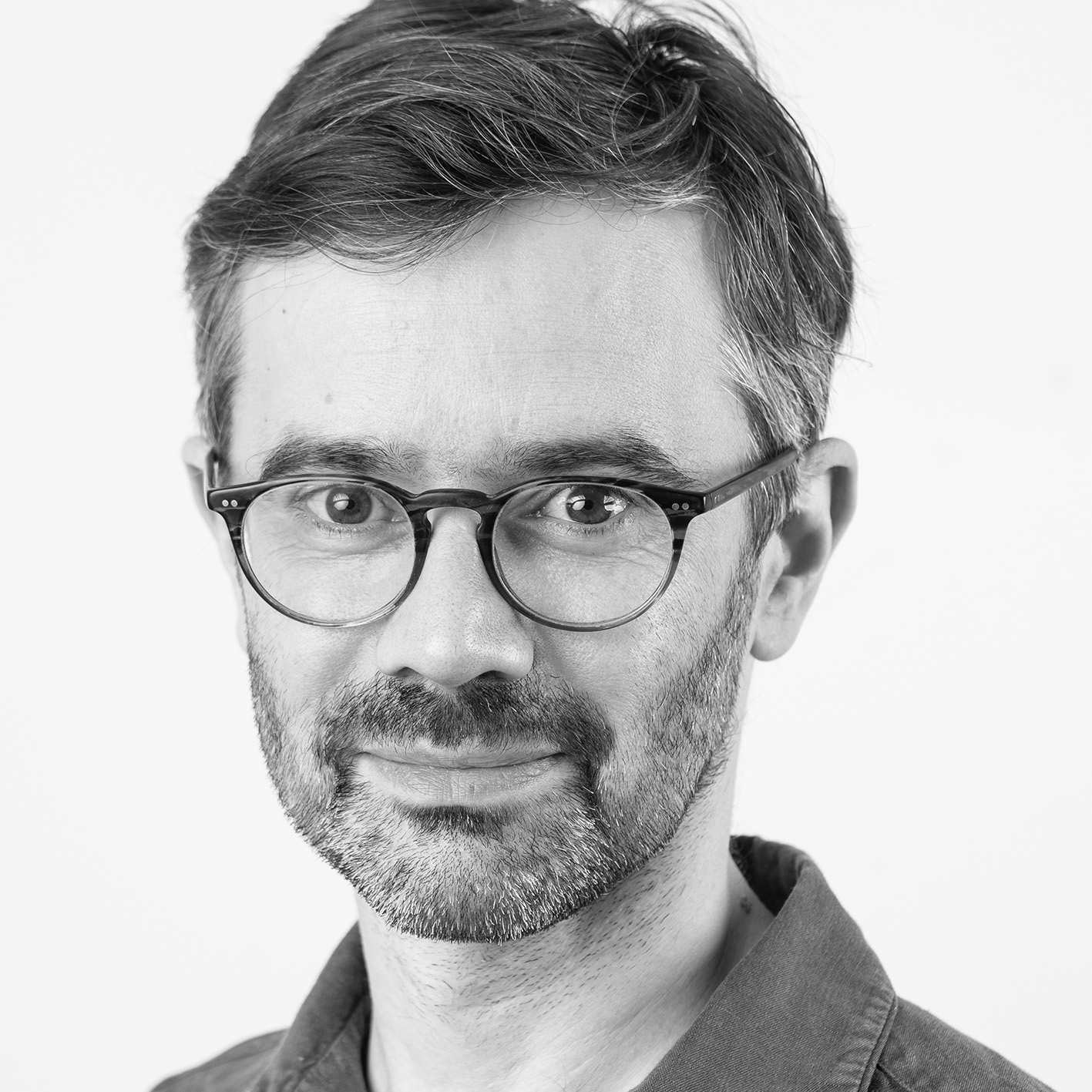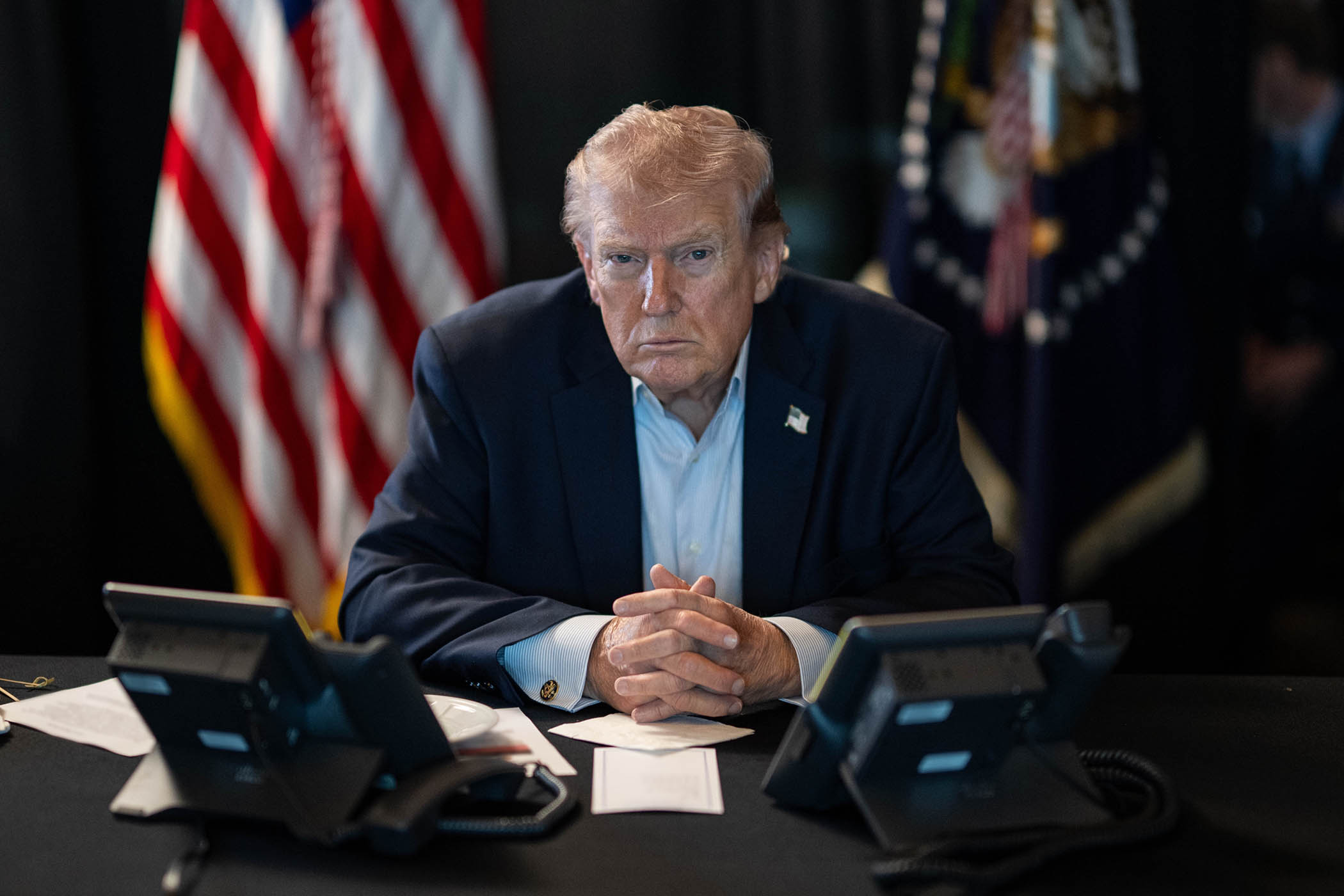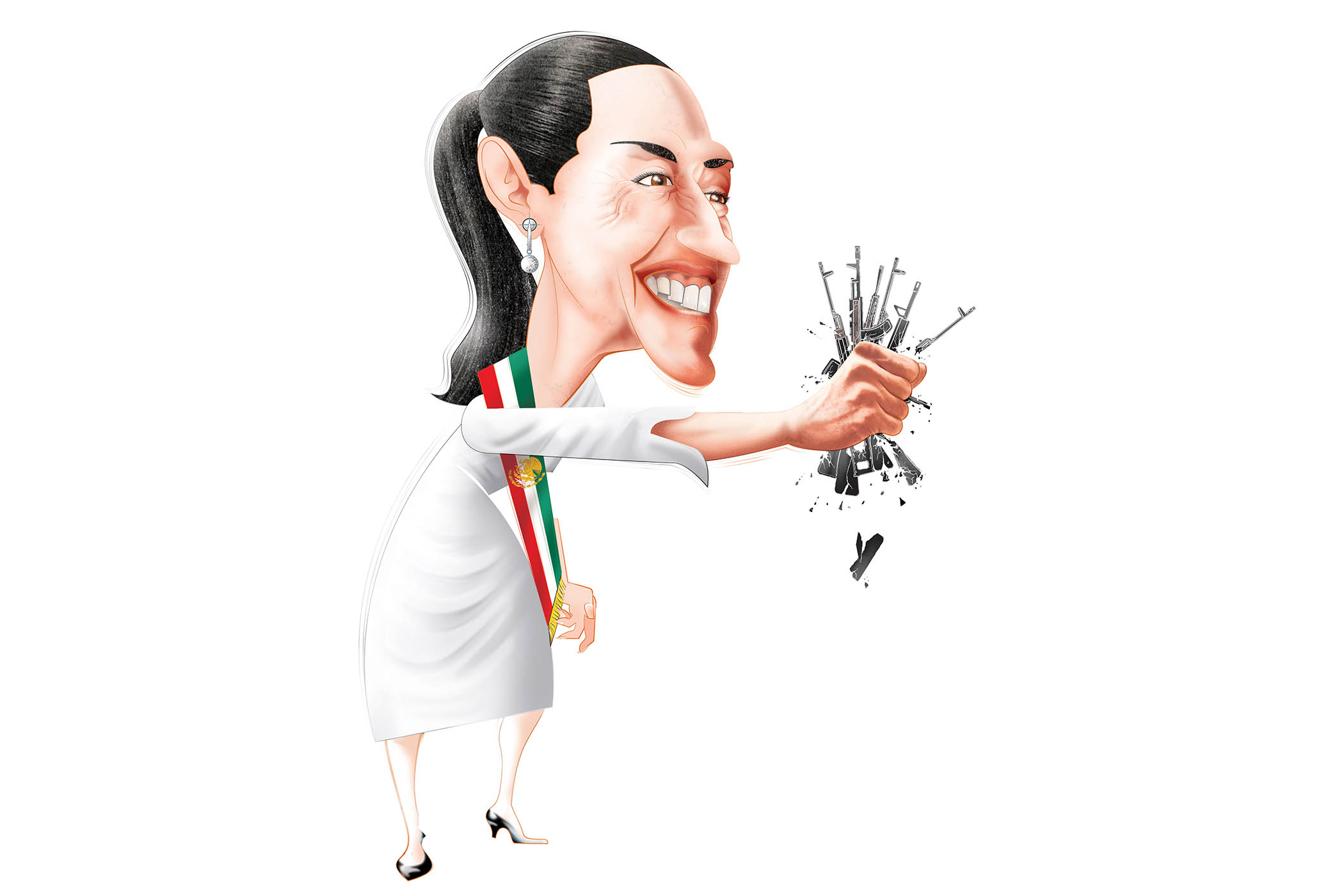Benjamin Netanyahu had to grovel and Donald Trump’s aides had, helpfully, written him a script. Passed the phone in the Oval Office, the Israeli prime minister took a deep breath and launched into a personal apology to the emir of Qatar for launching airstrikes on Hamas’s negotiating team in Doha.
To add insult to injury, the White House later released photos of the phone call. It was for Netanyahu an embarrassment; for the Qatari emir, Sheikh Tamim bin Hamad al-Thani, it was a symbol of just how far his country has come – and how successful his campaign of influence in America, particularly in Maga world, has been. Qatar has a population of just 3.1 million, of whom only about 400,000 are citizens. But it has the world’s third largest reserves of natural gas and over the past three decades has tried to use that wealth to buy influence and protect itself from bigger neighbours with stronger militaries, particularly Saudi Arabia.
On becoming emir in 2013, Thani refused to kowtow to the Saudis and over two decades built Qatar into a rival. While other oil- and gas-rich nations have spent big on defence, Qatar has focused on a combination of growing its cultural and economic power. In the UK its sovereign wealth fund bought Harrods and the Shard, while in France it took over the country’s biggest football team, Paris Saint-Germain. Its television news network, Al Jazeera, transformed media in the Middle East and, particularly during the 2011 Arab Spring, gave it an influence throughout the region. The soft-power strategy peaked in 2022 when Qatar became the first Middle East nation to host the Fifa World Cup.
But America has proved harder to influence, placing its relationship with mighty Saudi Arabia above tiny Qatar. In 2017, Saudi Arabia’s crown prince Mohammed bin Salman launched a diplomatic and economic blockade against Qatar. Across the region, governments were forced to take sides, and almost all chose the Saudis. Qataris were thrown out of neighbouring countries, Qatar Airways was barred from Saudi airspace and ships were barred from Emirati ports.
Trump, lobbied by the Saudis and Emiratis, chose bin Salman over Thani, giving a speech at the White House accusing Qatar of being in the grip of “extremist ideology” and sponsoring terrorism. For a nation that relies predominantly on the US for its security, this was a disaster.
In response, Qatar got out its chequebook, and started lobbying. It hired a bunch of Maga-connected politicians, including Pam Bondi (the attorney general) and Kash Patel (FBI director), to act as lavishly paid consultants. It put hundreds of millions of dollars into Jared Kushner’s investment firm and bought a hotel owned by Steve Witkoff and his partners that they were rather keen to part with. And most recently – and most brazenly – it has offered Trump a $400m plane for free.
The Saudi blockade ended in 2021, partly thanks to the intervention of Joe Biden. But it is in the second age of Trump that Qatar has cemented its power. Military ties have also deepened since Israel’s attack on Doha. Last week it was announced that Qatar would build an air force facility in Idaho. Money has played a big role, yes. But so too has the investment in diplomacy. While it previously took sides, notably during the Arab Spring, backing the Muslim Brotherhood and other Sunni groups across the region, it switched tack after the blockade and became the world’s pre-eminent mediator. Its diplomats have mediated in disputes between DR Congo and Rwanda, Venezuela and the US, and of course between Hamas and Israel.
“This is the brand and the role that Qatar has sought to carve out for itself over the years,” said Hugh Lovatt at the European Council for Foreign Relations. “They want to be seen as the go-to mediating state.”
It employed the full force of that convening power in the aftermath of the Doha strike. On the fringes of the UN general assembly in New York, Arab and Muslim leaders met Trump to persuade him to back a Gaza peace plan. Even the Saudis now acknowledge their influence.
The Qatari mediating powers are needed more than ever, if there is going to be any chance of turning Trump’s flimsy 20-point Gaza plan from a wishlist into an actual agreement. As Trump flew to Israel at the start of the week, for the signing ceremony-cum-victory lap for the Gaza ceasefire deal, the US president made clear his views on Qatar had changed. The emir had been “very, very brave,” he told reporters on board Air Force One. “Qatar should start getting some credit.”
Newsletters
Choose the newsletters you want to receive
View more
For information about how The Observer protects your data, read our Privacy Policy
Photography by Evan Vucci/AP



